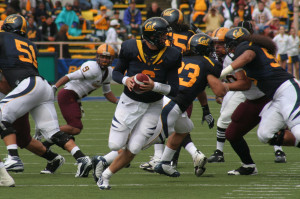
Contributor: Baxter Ekern, MBA, Vice President of Addiction Hope
Addiction is a disease. It does not know or care who you are, what you do for a living, how rich or poor you are, or if you came from the “right side” or “wrong side” of the tracks. If you continue to abuse drugs or alcohol, you will become addicted.
The National Council on Alcoholism and Drug Dependence (NCADD) research shows over 17.6 people in the U.S. suffer from alcohol abuse, and The National Survey on Drug Use and Health (NSDUH) estimates that 20 million Americans have used an illegal drug within the past 30 days1.
Professional Athletes Are Far From Immune
So, why would anyone be surprised that professional athletes think they are immune to the stuff? After all, they have been told they can do anything they want without ramifications since high school or college. They have been told “you are the best”, “no one can touch you”, “you won’t get in trouble”, “this can be fixed”, and “this mess can be cleaned up”.
Some of these phrases can be good to help motivate a person when used in the right context. Unfortunately, these words are often thrown about to justify the athlete’s actions and to keep them out of trouble and on the field, court, etc. Or, it may be just to keep the athlete happy so they will continue to perform.
When Athletes Think They Are Invincible to the Effects of Substance Abuse
 The point is, why wouldn’t they expect to get away with the partying, the drug abuse, and the boozing? They have been told they are untouchable for most of their lives. After all, what could possibly go wrong by giving a 21 year old young adult millions of dollars, set loose on the world, told they can do anything they want, and have access to virtually anything they can think of? At this age, these athletes are still “invincible” and “indestructible”, and they are going to test the boundaries of society and themselves.
The point is, why wouldn’t they expect to get away with the partying, the drug abuse, and the boozing? They have been told they are untouchable for most of their lives. After all, what could possibly go wrong by giving a 21 year old young adult millions of dollars, set loose on the world, told they can do anything they want, and have access to virtually anything they can think of? At this age, these athletes are still “invincible” and “indestructible”, and they are going to test the boundaries of society and themselves.
When they do become addicted, why wouldn’t you expect to hear them say “I can handle this, I’ve got it all under control, I’ve been doing this stuff since college, It hasn’t bothered me yet, I am not addicted, I am not an alcoholic, and I sure don’t need your help”?
Famous Athletes Who Have Struggled with Addiction
The thing is, addiction has affected several well-known and extremely talented athletes. Athletes such as Thomas (Hollywood) Henderson, Lawrence Taylor, Jennifer Capriati, Darryl Strawberry, Diego Maradona, Andre Agassi, Jon Daly, Len Bias, and Theo Fleury2.
More recently, we are aware of Johnny Manziel, Michael Phelps and Randy Gregory’s drug and alcohol issues. Each of these athletes have lost hundreds of thousands of dollars due to their drug and alcohol abuse.
How the Athletes Have Coped
 Manziel is well known for his partying exploits and just recently completed a stay in a drug treatment facility. Although he still has a position as quarterback with the Cleveland Browns, it is a good possibility that he will be cut before the season starts, and he has lost revenue from potential sponsors.
Manziel is well known for his partying exploits and just recently completed a stay in a drug treatment facility. Although he still has a position as quarterback with the Cleveland Browns, it is a good possibility that he will be cut before the season starts, and he has lost revenue from potential sponsors.
Phelps has had two drunk-driving arrests and has had issues with marijuana. He has been suspended by USA Swimming twice and released by key sponsors like Kellogg3.
Randy Gregory’s drug use cost him hundreds of thousands of dollars as well. His smoking of marijuana and the concerns of his failed drug test at the NFL Rookie Combines dropped him from a potential top 10 pick in the NFL Draft to being drafted in the 2nd round by the Dallas Cowboys4.
Waiting Too Long to Seek Treatment
The thing these elite athletes have in common is they believe they can handle everything, and their competitiveness can prevent them from seeking the help they need. All too often, the athlete does not seek treatment until they have been disgraced or arrested for abusing alcohol or drugs.
There is no easy solution for helping these elite athletes. It basically comes down to the individual. What are they going to do, are they going to take complete responsibility for their actions, and will they acknowledge that they are not in control and have a disease?
The sooner they understand and accept their situation and circumstances, the sooner they can truly begin the healing process.
References:
- https://ncadd.org/for-the-media/alcohol-a-drug-information
- http://drugabuse.com/30-famous-athletes-who-have-battled-drug-addiction-and-alcoholism/
- http://www.foxnews.com/health/2015/04/19/for-pro-athletes-battling-addiction-their-names-can-be-biggest-obstacle/
- http://www.dallasnews.com/sports/dallas-cowboys/headlines/20150515-moore-gregory-is-determined-not-to-let-failed-drug-test-be-the-final-word.ece
Last Updated & Reviewed By: Jacquelyn Ekern, MS, LPC on June 2nd, 2015
Published on AddictionHope.com
